CitiBank
Absolutely free. Moreover, you could open an account that's solely in American dollars, if you liked, then link it up with another in Euros and another in sterling. Happy days!
Except that the only CitiBank branches are in London. For those outside the English capital, I'm struggling to see how you would hand your cheque over.
The Co-Operative Bank
It's a percentage of the sterling amount, thus changes every day. It will be in the vicinity of £6-£8 for a $100 cheque at current exchange rates.
Since writing this, I've indeed presented a $100 Amazon cheque at the Co-Operative Bank. Their rate does change every day, but that's only the exchange rate. The Co-Op pay you whatever is the daily rate when you hand in the cheque. That's fair enough, as that's what any bank would do.
They also charge you an administration fee of £4 for that $100 cheque. The fee goes up if the amount is larger than $2000. I should imagine that I wouldn't care, if my commission was that much!
HSBC
Absolutely free, as long as you have an account with them. At least this is what I was told at the inquiry desk. I was told the same at the NatWest inquiry desk too. I'm yet to put it to the test to see if there really are no charges.
HSBC changed its policy in June 2013. I heard that it had been bought out by Lloyds TSB, but I see no evidence on-line about that. Either way, HSBC is now one of the least competitive, when it comes to submitting cheques in a foreign currency.
Lloyds TSB
Lloyd's Bank charge £5 for an American cheque of around $100. Thank you to Humagaia for the information.
I was unable to find out for myself. I walked up to the inquiry desk and smiled at the nice lady, "May I ask if you charge for cheques received in a foreign currency please?"
"Do you have an account with Lloyd's Bank?"
"No, but I would be willing to open one, if the charges were competitive."
She looked at me like I'd killed her first born, run off with her husband and trailed excrement all over her Axminster carpet. In tones usually reserved for addressing war criminals, she hissed, "We do NOT open bank accounts just to cash foreign cheques."
I just stared at her and left. My mother raised me not to punch snotty, rude people in the gob, but to rise above it.
Nationwide Building Society
The flat fee begins at £6, but rises up to around £20 for higher amounts. Thank you to Kinworm for this information.
Royal Bank of Scotland (RBS)/Natwest
A standard charge of £10.
Yorkshire Building Society
There is a sliding scale of charges, but $100 will be cashed for £7. This is the minimum charge available, so it's more as your cheque amount goes up.
I will add more banks and building societies as I check them out.


 As an on-line writer, it doesn't take long to realize that the monetization revolves around the United States of America.
As an on-line writer, it doesn't take long to realize that the monetization revolves around the United States of America. 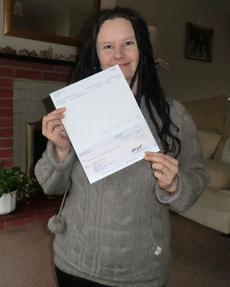 I can't say that I hadn't been warned. Months before my lovely Amazon cheque was in my hand,
I can't say that I hadn't been warned. Months before my lovely Amazon cheque was in my hand, 
 Guest
on 02/19/2013
Guest
on 02/19/2013

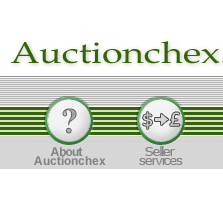 Eddie St Clare was a store-keeper on Ebay.co.uk, when he ran into the same problems as other British people making a living on-line. While the majority of his overseas customers used Pay-Pal, there would occasionally be a cheque that arrived in dollars.
Eddie St Clare was a store-keeper on Ebay.co.uk, when he ran into the same problems as other British people making a living on-line. While the majority of his overseas customers used Pay-Pal, there would occasionally be a cheque that arrived in dollars.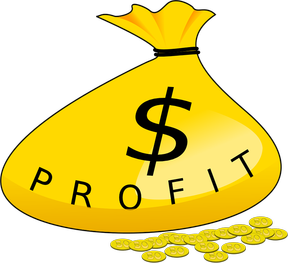 My cheque would have been in sterling, if I'd gone through
My cheque would have been in sterling, if I'd gone through  One solution is to go via
One solution is to go via 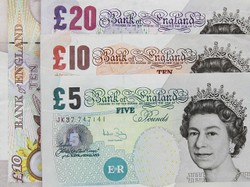

 St Tydecho's Churches in West Waleson 09/03/2014
St Tydecho's Churches in West Waleson 09/03/2014
 Goodies for an Outlander Premiere Partyon 03/06/2015
Goodies for an Outlander Premiere Partyon 03/06/2015
 Holocaust Memorial Day Interview with Rainer Höss, Grandson of Rudolf Architect of Auschwitzon 01/24/2015
Holocaust Memorial Day Interview with Rainer Höss, Grandson of Rudolf Architect of Auschwitzon 01/24/2015
 Romantic Valentine Gifts for an Outlander Fanon 01/16/2015
Romantic Valentine Gifts for an Outlander Fanon 01/16/2015
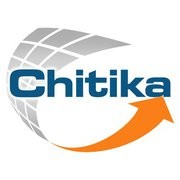
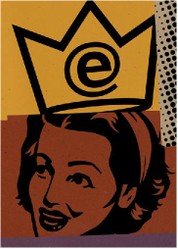
Comments
I've just watched a great video from an airport in Texas. A bloke was being really homophobic with a fellow passenger. He was getting right into his face and (apparently because I couldn't hear very well) calling out stuff too. Other passengers intervened, telling him this was unacceptable and trying to calm the situation. Then the lad physically attacked the gay man and suddenly people came from everywhere. They had him on the ground, restrained before the security staff got close!
I do love to see people taking down idiots.
Derek, have you never heard that racial and national stereotyping is odious and irrational? It is just as racist to stereotype the British nation as it is to stereotype Black people, women, men, Jews, Muslims, Catholics, Americans and homosexuals.
How curious, because you evidently just did. Are you no one? And the US military, in conjunction with the academe, invented the internet, not the world wide web. That is most definitely Tim Berners-Lee, a Briton.
BTW, you Brits are so boring that no one would ever what to read your crap!
US Department of Defense invented the Web, not British, come on!!
It wasn't so much the ads, but the selling of the software itself early on in the day. He did it at conferences, which really shook things up. Until then, everything was shareware, teaching how to make stuff or copying over programs. Bill Gates sat there and said, "I've made this, and I'll sell it to you." And dozens of geeks suddenly saw dollar signs in their future.
Bill Gates wasn't the first to monetise the web. He was actually a latecomer to the party. The first breakthrough was the Netscape Navigator browser in 1995, followed by AOL as a portal and email provider (and both monetised by floating on the stock exchange) . AOL then added loads of ads to their portal. In terms of advertising and selling online, you could say that AOL plus the p**n and d**g lot were the first to monetise the web. Google ads were late (only started in 2004) and Bing/Microsoft ads were later still.
Ah! Thank you very much for the heads up. It's always good to see where the options are.
That's one of the (few at present) good things about Squidoo. If you use their amazon modules the payments come with the rest of your Squidoo earning via PayPal. I believe that if you're selling a lot the higher rates you get by using you own links make all the hassle with the cheques worthwhile, but I've not reached those heights.
Hi Suramyakh,
Oh! Thank you very much for the head's up. I'll check that out.